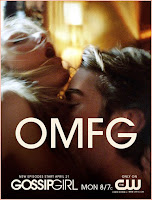 Just read a post over at the Mother Jones blog called “Throwing Clinton Under the Bus To Spite Mom.” Really? I mean, really? This conversation is going nowhere fast. In the post, Debra Dickerson trashes (to dredge up a dread practice from the 1970s) Courtney Martin and Amy Tiemann, then concludes:
Just read a post over at the Mother Jones blog called “Throwing Clinton Under the Bus To Spite Mom.” Really? I mean, really? This conversation is going nowhere fast. In the post, Debra Dickerson trashes (to dredge up a dread practice from the 1970s) Courtney Martin and Amy Tiemann, then concludes:
We’ll stop saying aloud that you don’t know what you’re talking about if you’ll stop believing that you know everything already. Deal?
Here’s what I posted in comments to Dickerson’s post, and here’s how I feel:
Deal.
Deborah Siegel here – a young(ish) Hillary supporter who feels pained at the way some young female Obama supporters are getting flamed. I don’t care how it started, or who said what about whom. Time to start focusing on beating McCain. I hope this is the last post of this tone that we’ll be seeing for a while. Goodbye to all THAT, I say.
Quick sidenote: Feminist history is full of intergenerational division, as I write about in my book. Important to remember that young Alice Paul and older Carrie Chapman Catt shared a goal (suffrage) but disagreed on tactics. “Libbers” and the older Betty Friedan disagreed on whether politics meant what you do in the bedroom or what happens at city hall. Together albeit in different ways they made the momentous change that became the 1st and 2nd+ waves.
Difference today is that we have blogs and online media, where it’s easier, it seems, to write snarkily and quote each other out of context. If I’ve been guilty of it too, mea culpa. Let’s move on. A Democrat in 2008. Deal?








